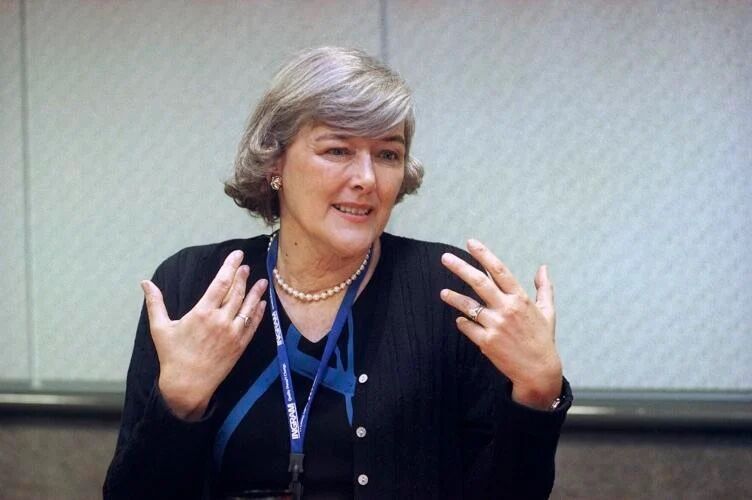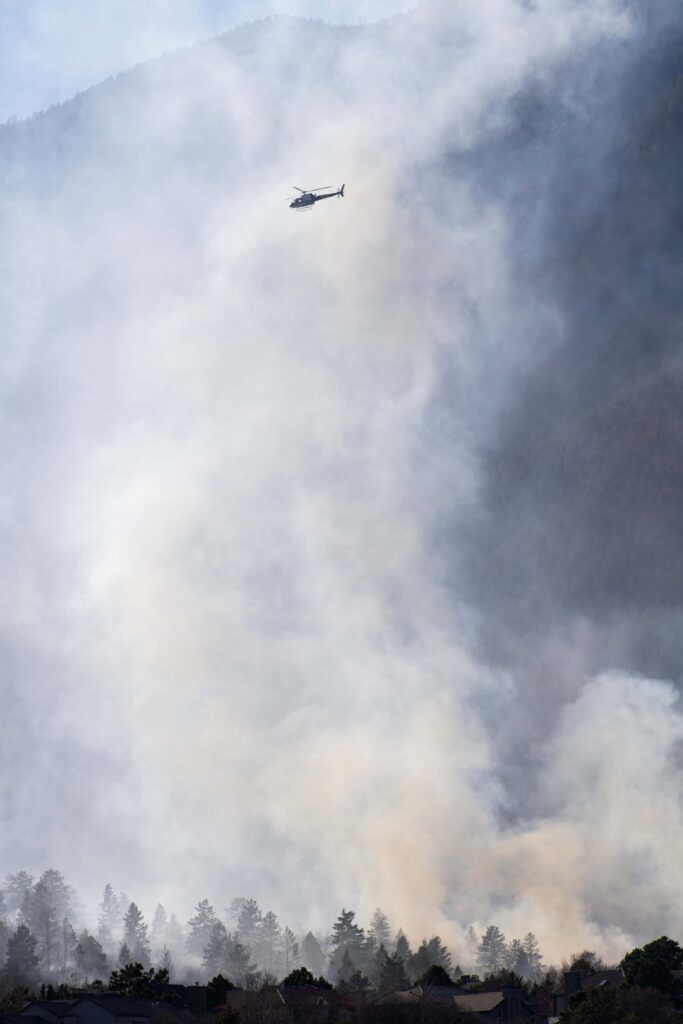US dedicates $60 million to saving water along the Rio Grande as flows shrink | OUT WEST ROUNDUP
NEW MEXICO
US directs $60 million to Rio Grande resiliency
ALBUQUERQUE — The U.S. government is dedicating $60 million over the next few years to projects along the Rio Grande in southern New Mexico and West Texas to make the river more resilient in the face of climate change and growing demands.
The funding announced May 10 by U.S. Interior Secretary Deb Haaland marks the first disbursement from the Inflation Reduction Act for a basin outside of the Colorado River system. While pressures on the Colorado River have dominated headlines, Haaland and others acknowledged that other communities in the West — from Native American reservations to growing cities and agricultural strongholds — are experiencing the effects of unprecedented drought.
Haaland noted that parts of the river have gone dry through the Albuquerque stretch in recent years. In fact, a decades-long drought has led to record low water levels throughout the Rio Grande Basin.
One of the longest rivers in North America, the Rio Grande provides drinking water for millions of people and supplies thousands of farmers with water for crops.
Colorado River basin states offer divergent plans to govern operations after 2026
The work will range from capturing more stormwater runoff to improving existing infrastructure. Officials said the savings could result in tens of thousands of acre-feet of water. An acre-foot is roughly enough to serve two to three U.S. households annually.
On the Rio Grande, prolonged drought and heavy reliance on groundwater pumping has reduced surface water supplies, resulting in decreased efficiency and lost wildlife habitat.
By capturing more stormwater and increasing storage, officials said they could recharge aquifers and reduce irrigation demands.
Governor seeks hydrogen investment in Netherlands trip
SANTA FE — The governor of New Mexico has announced plans to court new investments in hydrogen fuel development at a business summit in the Netherlands.
In a news release on May 10, Gov. Michelle Lujan Grisham said she planned to lead a delegation to an industry summit exhibition in the port city of Rotterdam seeking the “opportunity to sell New Mexico as a dynamic and thriving place for hydrogen industry investment.” She led a similar mission last year to Australia to talk with hydrogen entrepreneurs.
Lujan Grisham, a Democrat, has been a vocal proponent of investments in hydrogen as a transition fuel that can replace fossil fuels with cleaner-burning hydrogen as an energy source for vehicles, manufacturing and generating electricity.
Some environmentalists call hydrogen a false solution because it frequently relies on natural gas as a fuel source. Several New Mexico-based groups have resisted proposed state incentives for hydrogen development, citing concerns that it would prolong natural gas development and increase demand for scarce water supplies.
Colorado, Wyoming team up for up to $160 million to develop climate-resilient technologies
Hydrogen also can be produced through electrolysis — splitting water molecules using renewable energy sources such as wind and solar power, as well as nuclear power.
New Mexico is a major energy producing state with extensive natural gas reserves and broad recent investments in electrical transmission lines aimed expanding renewable energy production from sources including wind and solar.
The Biden administration last year passed over a four-state bid by New Mexico, Colorado, Utah and Wyoming for a share of $7 billion aimed at kickstarting development and production of hydrogen fuel. It chose instead projects based in California, Washington, Minnesota, Texas, Pennsylvania, West Virginia and Illinois.
WYOMING
Chinese-backed firm blocked from owning land near base
WASHINGTON — President Joe Biden on May 13 issued an order blocking a Chinese-backed cryptocurrency mining firm from owning land near a Wyoming nuclear missile base.
The order forces the divestment of property operated as a crypto mining facility near the Francis E. Warren Air Force Base. It also forces the removal of certain equipment owned by MineOne Partners Ltd., a firm that is partly owned by the Chinese state.
This comes as the U.S. was slated to issue major new tariffs on electric vehicles, semiconductors, solar equipment and medical supplies imported from China, according to a U.S. official and another person familiar with the plan.
The divestment order was made in coordination with the U.S. Committee on Foreign Investment in the United States — a little-known but potentially powerful government agency tasked with investigating corporate deals for national security concerns that holds power to force the company to change.
A 2018 law granted CFIUS the authority to review real estate transactions near sensitive sites across the U.S., including F.E. Warren Air Force Base.
The order was vague about the specific national security concerns, with the Treasury Department saying only that there were issues with “specialized and foreign-sourced equipment potentially capable of facilitating surveillance and espionage activities” that “presented a significant national security risk.”
Treasury Secretary Janet Yellen, who serves as the chairperson of CFIUS, said the role of the committee is “to ensure that foreign investment does not undermine our national security, particularly as it relates to transactions that present risk to sensitive U.S. military installations as well as those involving specialized equipment and technologies.”
SOUTH DAKOTA
Two more tribes ban Kristi Noem from their land
South Dakota Gov. Kristi Noem is now banned from entering nearly 20% of her state after two more tribes banished her in May over comments she made earlier this year about tribal leaders benefitting from drug cartels.
The latest developments in the ongoing tribal dispute come on the heels of the backlash Noem faced for writing about killing a hunting dog that misbehaved in her latest book.
The Yankton Sioux Tribe voted on May 10 to ban Noem from their land in southeastern South Dakota just a few days after the Sisseton-Wahpeton Oyate tribe took the same action. The Oglala, Rosebud, Cheyenne River and Standing Rock Sioux tribes had already taken action to keep her off their reservations. Three other tribes haven’t yet banned her.
Noem reinforced the divisions between the tribes and the rest of the state in March when she said publicly that tribal leaders were catering to drug cartels on their reservations while neglecting the needs of children and the poor.
Noem’s spokesman didn’t respond to email questions about the bans. But previously she has said she believes many people who live on the reservations still support her even though she is clearly not getting along with tribal leaders.
Nancy Pallozzi's bid to rebuild Jeffco GOP hits snag amid uproar over Kristi Noem book | TRAIL MIX
The tribes have clashed with Noem in the past, including over the 2016 Dakota Access Pipeline protests at Standing Rock and during the COVID-19 pandemic when they set up coronavirus checkpoints at reservation borders to keep out unnecessary visitors.
And there is a long history of rocky relations between Native Americans in the state and the government dating back to 1890, when soldiers shot and killed hundreds of Lakota men, women and children at the Wounded Knee massacre as part of a campaign to stop a religious practice known as the Ghost Dance.
UTAH
20 options offered for NHL team name
Ownership of the NHL’s team in Utah has given fans 20 choices to vote on for the franchise’s new name, according to a survey sent out on May 8 by Smith Entertainment Group.
Owner Ryan Smith has told The Associated Press the team will have a name starting with Utah. The inaugural season will feature jerseys with the name of the state on them, with a name, logo and colors to debut for 2025-26 after work done by the branding company Doubleday & Cartwright.
Denver mayor Mike Johnston wagers with Dallas Mayor on Avalanche's success in NHL playoffs
“Utah’s NHL team is a community asset, and we want to make sure that the community has a say in what the name is,” said Smith, whose group also owns the NBA’s Utah Jazz. He called it “only fitting” that the fans get the chance to help name the team.
The options provided to choose from are Frost, Ice, Powder, Mountaineers, Freeze, Mammoth, Black Diamonds, Blast, Caribou, Blizzard, Swarm, Hive, Outlaws, Yeti, Squall, Fury, Glaciers, Canyons, Venom and HC, which stands for Hockey Club.
SEG bought the Arizona Coyotes from former owner Alex Meruelo for $1.2 billion and relocated the team to Salt Lake City. Utah will start play in the Jazz’s downtown arena, Delta Center.











